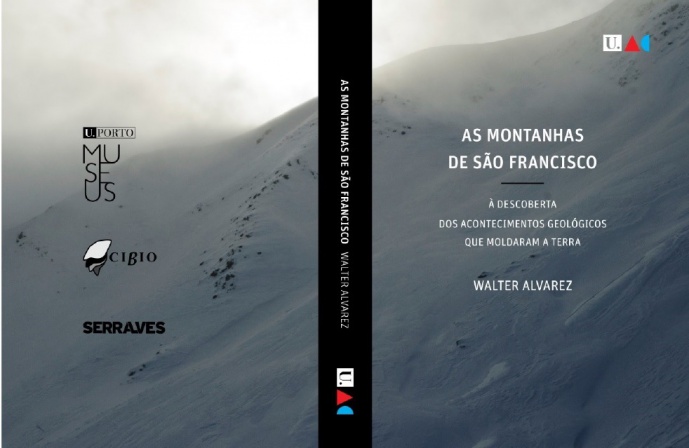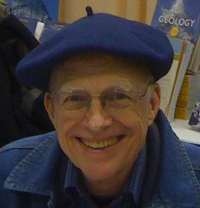WALTER ALVAREZ CONFERENCE IN PORTO IN MAY

On May 22, 2014, at 17h30, the Serralves Foundation will host Walter Alvarez's conference A study of Big History — Supercontinents and how the Portuguese invented science, and the presentation of the book As Montanhas de São Francisco - à descoberta dos eventos geológicos que moldaram a Terra, co-edited by CIBIO-InBIO.
A study of Big History — Supercontinents and how the Portuguese invented science
This talk will explore two aspects of the historical relationship of Portugal to continents and oceans, which have taken place at very different time scales. The first deals with the Portuguese explorers of the 15th and 16th centuries, who traced the shorelines separating continents from oceans, which were previously unknown to Europeans. It will present a new viewpoint, developed with Lisbon historian of science Henrique Leitão, arguing that the Portuguese voyages of discovery were the first manifestation of what was to become modern science, that we can therefore say that the Portuguese invented science, and that the first modern science was geology, a century before Copernicus. The second aspect presents very recent discoveries by geologists, including Portuguese workers, showing that over many hundreds of millions of years Earth has slowly cycled between two extremes, in one of which there are continents dispersed around the globe, as they are today, and one in which most of the continental masses are gathered together into a single supercontinent, the most recent of which was Pangaea. Understanding the history of the supercontinent cycle gives us new and interesting insights into the origin of the geographical and geological constraints that underlie the Portuguese voyages of discovery.

Click here to read a synopsis of the book "As Montanhas de São Francisco" (in Portuguese).

Walter Alvarez
Walter Alvarez received his PhD in geology at Princeton. His thesis research (and honeymoon) was in the roadless Guajira desert in Colombia, living with Wayúu Indians and smugglers.
Much of his research has been in Italy, where he worked on archeological geology in Rome, on the tectonics of the geologically complex Mediterranean, and on Earth’s magnetic reversals recorded in deep-water limestones in the Apennine Mountains of Italy.
In 1977 he joined the faculty at U.C. Berkeley and began a study of the mass extinction at the end of the Cretaceous Period. Evidence from iridium measurements suggested that the extinction was due to impact on the Earth of a giant asteroid or comet. Together with his father, Nobel laureate Luis Alvarez, and Frank Asaro e Helen Michel, Alvarez published the paper that changed the until then prevalent notion that extinctions occurred gradually throughout History. In 1991, that hypothesis was confirmed by the discovery of a huge impact crater, buried beneath the subsurface of the Yucatán Peninsula, dating from precisely the time of the Cretaceous-Tertiary extinction.
He is currently interested in Big History, the new field that aims to tie everything in our planet's past into a coherent understanding of the grand sweep and character of history.
Alvarez has been awarded with the Penrose Medal, given by the Geological Society of America, and has received honorary doctorates from the University of Siena in Italy and the University of Oviedo in the Principality of Asturias in Spain, where his family originated.
Click here to read the press release for this event (in Portuguese).
FREE ADMISSION
May 22, 2014 | 17h30
Auditorium, Fundação de Serralves
Rua D. João de Castro, 210
4150-417 Porto Portugal
Click here to watch the video conference.